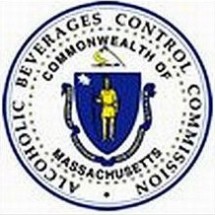Law Offices of John P. Connell, P.C.: Towns and cities in Massachusetts such as Framingham and Wareham in recent years have debated whether to impose municipal wide regulations that would ban the sale of so-called “nips” from liquor stores operating within those communities. Nips (a term derived from the word “nipperkin,” meaning a unit of liquid measurement containing less than a pint) usually contain about 1.7 ounces of distilled spirits. While nips are popular for people seeking an immediate infusion of alcohol wherein they can also easily discard the little bottle, and therefore not have to possess an open container, nips are also popular with people with small budgets for drinking, or with people who buy them for cooking, gifts, airline travel and other reasons having to do with the convenience of their small sizes.
In some communities, nips are reviled and associated with litter and blight when they are found, sometimes by the hundreds, discarded along road ways or behind liquor stores. The problem with discarded nips, however, is primarily a littering issue, and not usually a liquor licensing issue. Nevertheless, the issue of discarded nips is more and more being addressed by some towns and cities through their liquor licensing boards rather than through other methods of discouraging littering, such as the implementation of the “Bottle Bill” legislation which provided a 5 cent fee for returning an empty bottle or can. Indeed, nips are becoming harder and harder to find in the City of Boston.
In a recent ABCC decision, In Re: Fernandez Brothers Liquors, Inc., ABCC Decision dated March 23, 2016, which you can read in full here, the buyer of a liquor store located in Roxbury sought to purchase and transfer the liquor license used by the seller which did not contain as a “condition” on its license that it was prohibited from selling nips or single containers of beer. At the liquor license transfer hearing, however, the Boston Licensing Board imposed the condition of “no nips/no singles to be sold at the premises.” The buyer of the liquor store appealed to the ABCC and argued, among other things, the Boston Licensing Board singled out the buyer because of its location in Roxbury; that the Board had exceeded its authority in imposing such a condition on the license; and that such a condition was not reasonably related to the bad practices of the buyer, who had indeed not even took possession of the store yet.
In its defense that it had not singled out this store located in Roxbury, the City of Boston provided evidence that in 2015 alone, it had imposed new “no nips/no singles” conditions on sixteen (16) separate liquor store licenses located in a host of neighborhoods across the City of Boston, including the Seaport and Haymarket Square. Such a trend by the City of Boston, while addressing the littering issue, is having a profound effect on the value of liquor stores which are currently allowed to sell nips but which may face the same new restrictive conditions as the buyer received in the Fernandez Brothers case when it came to transferring its liquor license, as some liquor stores’ sales are highly dependent on the sale of nips.
In the ABCC decision, the ABCC sided with the City of Boston and held that the “no nips/no singles” conditions imposed on a new licensee without any prior allegations of bad practices in this regard was a “reasonable exercise of its lawful discretion” when considering to issue a liquor license to a new applicant. Whether this application of the Boston Licensing Board’s discretion is exercised during the annual renewal of existing licenses remains to be seen, but one should no longer assume within any town or municipality with the Commonwealth of Massachusetts that when buying a liquor store that you will automatically receive the same un-conditioned liquor license that was possessed by the seller of that store.
Law Offices of John P. Connell, P.C. © 2016

